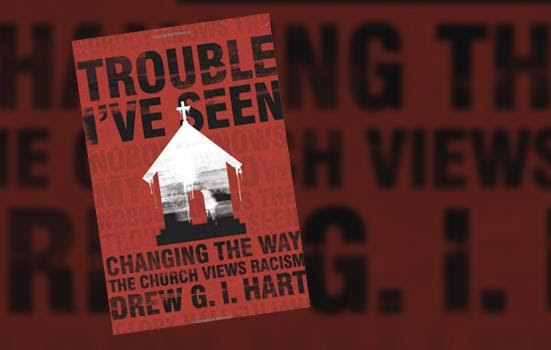An Understanding Mind
"At Gibeon the Lord appeared to Solomon in a dream by night; and God said, 'Ask what I should give you.' And Solomon said, 'You have shown great and steadfast love to your servant my father David, because he walked before you in faithfulness, in righteousness, and in uprightness of heart toward you; and you have kept for him this great and steadfast love, and have given him a son to sit on his throne today. And now, O Lord my God, you have made your servant king in place of my father David, although I am only a little child; I do not know how to go out or come in. And your servant is in the midst of the people whom you have chosen, a great people, so numerous they cannot be numbered or counted. Give your servant therefore an understanding mind to govern your people, able to discern between good and evil; for who can govern this your great people?'
It pleased the Lord that Solomon had asked this. God said to him, 'Because you have asked this, and have not asked for yourself long life or riches, or for the life of your enemies, but have asked for yourself understanding to discern what is right, I now do according to your word. Indeed I give you a wise and discerning mind; no one like you has been before you and no one like you shall arise after you.'"
It pleased the Lord that Solomon had asked this. God said to him, 'Because you have asked this, and have not asked for yourself long life or riches, or for the life of your enemies, but have asked for yourself understanding to discern what is right, I now do according to your word. Indeed I give you a wise and discerning mind; no one like you has been before you and no one like you shall arise after you.'"
1 Kings 3:5-12, NRSV
Solomon is often regarded as one of the wisest men who ever lived. In scripture, he’s considered without equal in that regard (excepting Jesus), partly because of his writings in the books of Proverbs and Ecclesiastes. This passage from 1 Kings is an account of, essentially, the beginning of Solomon’s wisdom from God, although it really begins with his posture of faithfulness toward the Lord.
Scripture tells us that Solomon grew up faithful to God, like his father, David. He loved the Lord and recognized God’s love for his father. As he mentions, he considered his own rise to the throne a direct result of God’s work, a perspective that I believe plays a role in his humility. David, on his deathbed, also counseled Solomon to put his trust in God, and Solomon does just that.
Asking For Wisdom
You may have heard that Solomon, having been given an opportunity to request something from God, asked for wisdom, but did you notice what Solomon actually asks for? It’s more specific than simply "wisdom." Solomon asks for an understanding mind, able to discern between good and evil. As God rephrases it: "understanding to discern what is right."This is different from what most people think when we say wisdom. Wisdom is often considered to be experience, good or sound judgement, or knowledge, all of which are vague generalities. When we say that someone is wise, that can mean all kinds of different things depending on the context, but what Solomon asks for is very specific. Solomon wants to be able to discern between good and evil — to understand what’s right — so that he can govern the Israelites. This is what he calls an "understanding mind:" the ability to discern.
"Wisdom" Literature
What about all of that "wisdom literature" that Solomon wrote? Isn’t that an accumulation of what he received from God, which we call wisdom?At the heart of all wisdom is goodness. Wisdom is many things, but everything that comes from wisdom has "what’s right" at its core. It’s the answer to the "why" behind wise action: because it’s good and right.
This isn’t “right" as in "correct." We aren’t talking about having correct answers while others have incorrect ones. That places emphasis on intellectual knowledge, which too often becomes an idol. This is right as in moral or ethical. Solomon wants to know what’s good, as opposed to evil, and God makes the judgment call that what’s good is ultimately the right choice, the moral or ethical choice.
When intellectual knowledge is placed at the core of wisdom, wisdom becomes the property of the "elite" (i.e. the educated), but God gives discernment to Solomon because he’s humble. In that way, it’s the opposite of intellectual "wisdom". Wisdom from God is accessible to anyone, so when Proverbs 1 speaks of knowledge, this is knowledge of goodness and what is right.
This is why wisdom usually takes a long time to attain. Gaining wisdom takes more than reading books or listening to advice, because the search for wisdom is really practice in discernment. It requires careful reflection, and reflection requires experience. What Solomon attempts to do in his writings is articulate a lifetime of experience and reflection in the hopes that his son and others will continue that reflection.
Reflecting on Scripture
This is also one of the things that makes scripture such a powerful resource. All of scripture is continual reflection and articulation by men and women of God on their experiences of God interacting with humanity. When we study, we’re doing precisely what those writers did. We, too, reflect on the experiences of God and humanity. We don’t study for mere intellectual knowledge. We’re looking for something more, something deeper. We’re seeking an understanding mind to discern what’s good and what’s evil, to discern what’s right.This is the trouble with legalism. Legalism almost always relies on a superficial reading of scripture. It approaches scripture the way one would approach a text book and holds basic, intellectual knowledge to be the end goal. Unfortunately, that leaves little room for discernment, because it assumes that one-size-fits-all. That’s the assumption that keeps getting in the way of people accepting the work of the Holy Spirit throughout the New Testament, including the religious leaders’ inability to accept Jesus as the Messiah.
Enter: Jesus, whose life reveals the mystery of what’s good. If the heart of wisdom is discerning what’s right (what’s good), then the heart of what’s right is revealed in Christ. What’s good and right is this: love God with all that we are, and love others. Whatever hinges on those two things, that’s good and right, and the life that moves toward love is pleasing to God. Jesus exemplifies this on the cross and his reconciling and healing work with the marginalized and disenfranchised. Sometimes, that work leads to dying on a cross, but ultimately, it leads to being raised from the dead. In any case, the wisdom that stems from discerning what’s right, what’s good, is true wisdom.
Photo by Heather Mount on Unsplash




Comments
Post a Comment